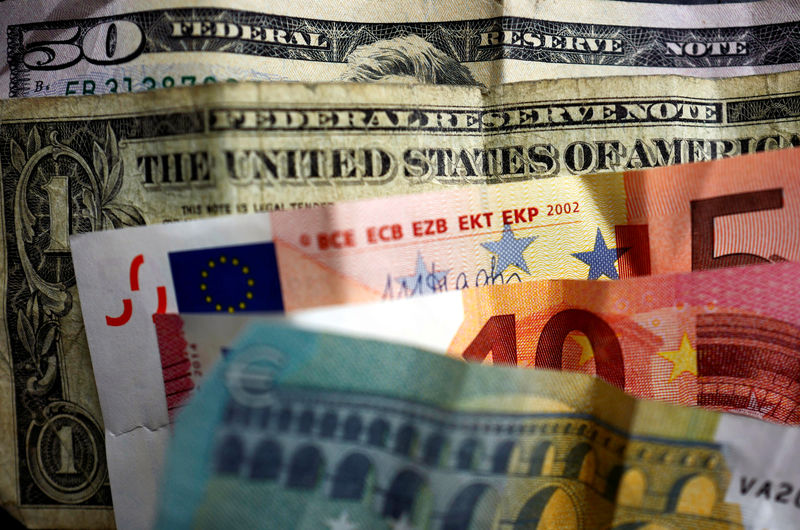By Peter Nurse
Investing.com - The dollar traded marginally lower in early European trading Thursday after benign data eased inflation fears, while the upcoming European Central Bank meeting meant the euro was also in the spotlight.
At 2:50 AM ET (0750 GMT), the Dollar Index, which tracks the greenback against a basket of six other currencies, was down 0.1% at 91.727, after hitting a one-week low of 91.698 earlier.
USD/JPY was up 0.3% at 108.70, GBP/USD rose 0.1% to 1.3948, while the risk-sensitive AUD/USD rose 0.5% to 0.7774.
The dollar, along with U.S. Treasury yields, has been rising steadily on a combination of loose fiscal and monetary policy - the U.S. House of Representatives gave final approval to a massive $1.9 trillion stimulus package on Wednesday - will stoke a stronger recovery, leading to inflation and an earlier end to monetary stimulus than the Federal Reserve's messaging would suggest.
However, this view took a hit Wednesday after data showed that core consumer prices rose by just 0.1% month-on-month in February, unchanged from January’s release. On the year, prices rose 1.3%, slowing down slightly from the 1.4% rate recorded in January.
The yield on the benchmark 10-year Treasury was at 1.51% early Thursday, a considerable drop from the one-year high of 1.63% last week.
Focus later in the day will be on an auction of 30-year U.S. Treasury bonds. A poorly received 7-year auction in February preceded the recent rise in yields, but both auctions - 3-year and 10-year - this week have drawn enough demand to ease concerns about the market’s ability to absorb this year's hefty increase in debt needed to finance the response to the pandemic.
Elsewhere, EUR/USD rose 0.1% to 1.1942 ahead of the European Central Bank latest policy-setting meeting, with the announcement due at 7:45 AM ET (1245 GMT).
“With euro strength no longer a pressing issue and higher bond yields in focus instead, the ECB meeting should not be a risk event for the euro,” said analysts at ING, in a research note.
Instead of its views on the currency, investors will be looking for what the central bank says regarding bond yields with policymakers offering up differing views on the subject ahead of the meeting.
“While the ECB may talk about the unwarranted increase in yields and the tightening of financial conditions, more forceful action that would weigh on the single currency (i.e. an increase in the Pandemic Emergency Purchase Programme's 'envelope' – be it an announcement or outright signaling) is highly unlikely,” added ING.
